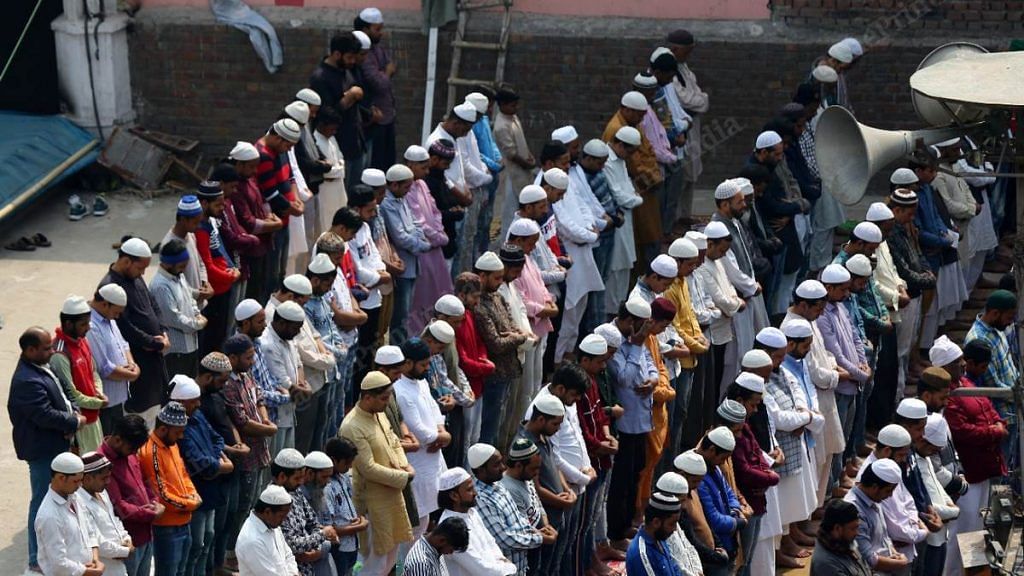New Delhi: This year, Shab-e-Barat will be observed from the evening of 8 April until next morning, but people have been advised to stay at home with their families and practice social distancing in the wake of the coronavirus pandemic.
The Delhi Police Sunday appealed to the Muslim community in the national capital to not venture out their homes for this year’s Shab-e-Barat in light of the nationwide lockdown.
But what is Shab-e-Barat and what is its religious significance?
It’s a day of atonement
An important day for the Muslim community, Shab-e-Barat is observed on the night between day 14 and 15 of Sha’ban — the eighth month of the Islamic calendar, which signifies the month of “separation” as pagan Arabs used to disperse in search of water at this time.
The festival is observed as the night of forgiveness or the day of atonement.
On this day, Muslims visit mosques and the graves of their loved ones and light candles, and spend the night praying for Allah’s mercy.
Muslims believe that if someone prays to Allah throughout the night and seeks forgiveness for all the sins he had committed, he could be forgiven. Hence, Shab-e-Barat is a night devoted to pleading for forgiveness for the past year and good fortune for the coming year.
Sweets like halwa, savaiyyan (vermicelli) are prepared and shared with neighbours, friends and relatives in the memory of those who died during the year, while some prepare sweet dishes and flat bread to distribute among the poor. Flowers are also placed on graves of the deceased family members.
For ascetic Muslims, this is the day of “divine benediction”, and, therefore, they offer prayers and fast, which is said to have greater acceptance from God.
Also read: Asians will become the new Muslims — how coronavirus will change our world like 9/11
Lockdown orders
With the festival largely celebrated at night, houses and streets are illuminated by candles and skies are filled with fireworks.
The roads around mosques and cemeteries see large crowds on the day of Shab-e-Barat, with extra police deployment to ensure law and order.
Besides Delhi Police, District Magistrate Srinagar Shahid Iqbal Choudhary has issued an order, prohibiting all sorts of religious congregations and public movement on the occasion.
Malegaon blast took place on the night of Shab-e-Barat
The 2006 Malegaon blast had coincided with Shab-e-Barat.
On 8 September, bombs were planted on a bicycle parked near a cemetery in the city of Malegaon in Maharashtra, while Friday prayers were going on at a nearby mosque. Nearly 37 people were killed and over a hundred injured.
Nine Muslim men were arrested and chargesheeted by the National Investigation Agency (NIA). Eight accused were later discharged of all terror charges by a sessions court in 2016 citing insufficient ground to proceed against them. One accused died while the case was pending.
Also read: Pakistan trying to ‘influence’ Indian Muslims to violate the Covid-19 lockdown: Delhi Police
